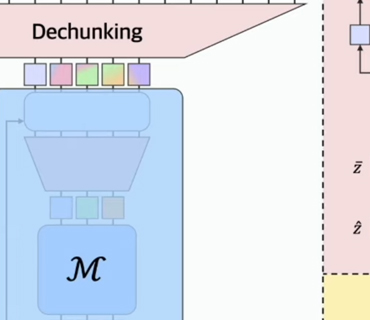Articles

The Misuse of the Term AGI: Misinformation, Hype, and False Promises
Every day, my ears hurt more from hearing— or rather, my eyes from reading— the absurdities that are published on LinkedIn, especially regarding how humans, in general, are using artificial intelligence.
It particularly turns my stomach to see how some so-called "AI Academies" and "AI experts" violate the term AGI (Artificial General Intelligence), creating a completely false image of what it truly means. The so-called "experts in process automation" are recklessly throwing this term around, and now, more than ever, with the rise of AI agents, they are selling it to companies with the slogan: "It will increase your productivity by 200%."
The term AGI should not be used lightly or confused with current advancements in artificial intelligence. In recent years, we have seen exponential growth in AI models that can perform complex tasks with impressive accuracy. However, just because machines and computers automate tasks does not mean we have reached AGI. We are simply on the right path.
For example, Satya Nadella, CEO of Microsoft, made this clear (if I remember correctly, this past February): The real indicator that we have reached AGI is not just a technological breakthrough but its actual impact on the global economy. According to Nadella, AGI should lead to a global economic growth of 7 to 10%, similar to the impact of the Industrial Revolution. Until we see this level of disruption in productivity and economic growth, we cannot speak of AGI in the strict sense.
The real problem today is the misuse of the term AGI. Due to the current AI hype, the term is being used indiscriminately, creating false expectations among businesses and users. Talking about AGI while we are still at the stage of advanced machine learning models and specialized systems is misleading. This is not just about improving processes or automating tasks within a company; it is about a radical transformation of the global economy and the way we work and live.
Just because a company implements an AI agent does not mean it already has AGI working for it. And just because an AI agent replies to emails on your behalf does not mean your productivity—and therefore your profitability—has increased by 200%.
If you don’t want to take the word of a lesser-known expert, at least consider the opinion of one of the leading figures driving this technology. AGI is not just a technological goal; it is an economic and social transformation of historical proportions.
Businesses should focus on what AI can actually do today and how they can leverage these advancements to improve their productivity and efficiency. A crash course does not make someone an expert. Being a true professional requires real experience and solid knowledge. Advising a company takes much more than just an online course created by a YouTube opportunist looking to monetize the AI hype.
You cannot even imagine the damage this misinformation is causing, not just to the job market but also to businesses in the short term. If companies do not carefully choose their advisors and partners on this journey, the consequences will be irreparable.














The Author
Juan García
Juan García is an Artificial Intelligence Expert, Author, and Educator with over 25 years of professional experience in Industrual Businesses. He advises companies across Europe on AI Strategy and Project Implementation and is the Founder of DEEP ATHENA and SMART &PRO AI. Certified by IBM as an Advanced Machine Learning Specialist, AI Manager and Professional Trainer, Juan has written several acclaimed Books on AI, Machine Learning, Big Data, and Data Strategy. His Work focuses on making complex AI Topics accessible and practical for Professionals, Leaders, and Students alike.
More